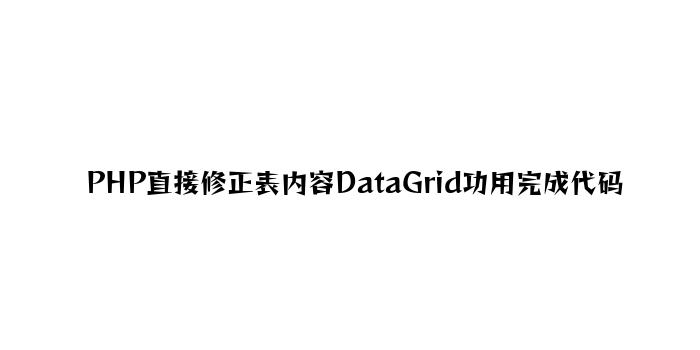
本文实例讲述了PHP Socket网络操作类定义与用法。分享给大家供大家参考,具体如下:
web前端测试:
<html>
<head>
<title>test</title>
<script>
g_xmlHttpReq = new XMLHttpRequest();
function onReplyCallback()
{
if(g_xmlHttpReq.readyState==4 && g_xmlHttpReq.status==200)
{
alert(g_xmlHttpReq.responseText);
}
}
function on_stop_service()
{
var cmd = document.getElementById("inCmd").value;
g_xmlHttpReq.open("GET","./service/main.php?cmd=" + cmd,true);
g_xmlHttpReq.onreadystatechange=onReplyCallback;
g_xmlHttpReq.send(null);
}
</script>
</head>
<body>
<input type="text" id="inCmd">
<hr>
<button onclick="on_stop_service()">关闭服务</button>
</body>
</html>
mysocket.php:
<?php
class Connector
{
public static $instance=null;
public $conn;
private function __construct()
{
set_time_limit(0);
$ip = '192.168.238.1';
$port = 8888;
if(($this->conn = socket_create(AF_INET,SOCK_STREAM,SOL_TCP)) < 0)
{
echo "socket_create() 失败的原因是:".socket_strerror($this->conn)."n";
}
$result = socket_connect($this->conn, $ip, $port);
if ($result < 0) {
echo "socket_connect() failed.nReason: ($result) " . socket_strerror($result) . "n";
}else {
echo "连接OKn";
}
}
public static function getInstance()
{
if(is_null(self::$instance))
{
self::$instance = new Connector;
}
return self::$instance;
}
public function sendMsg($msg)
{
socket_write($this->conn,$msg);
}
public function getMsg()
{
$clients = array($this->conn);
while(true)
{
$read = $clients;
$wrSet = NULL;
$errSet = NULL;
if(socket_select($read, $wrSet,$errSet, 3) < 1)
{
continue;
}
foreach($read as $read_sock)
{
$data = @socket_read($read_sock,1024,PHP_BINARY_READ);
socket_close($this->conn);
return $data;
}
}
}
}
?>
main.php(调用场所):
<?php
require_once('mysocket.php');
$con = Connector::getInstance();
$req = $_GET['cmd'];
$con->sendMsg($req);
$ret = $con->getMsg();
echo $ret;
?>
应用说明:
客户端ajax发起请求调用Php,然后php借助socket进一步发起请求给C++模块。
更多关于PHP相关内容感兴趣的读者可查看本站专题:《php socket用法总结》、《php字符串(string)用法总结》、《PHP数学运算技巧总结》、《php面向对象程序设计入门教程》、《PHP数组(Array)操作技巧大全》、《PHP数据结构与算法教程》、《php程序设计算法总结》及《PHP网络编程技巧总结》
希望本文所述对大家PHP程序设计有所帮助。
-----正文到此结束-----






发表评论 取消回复